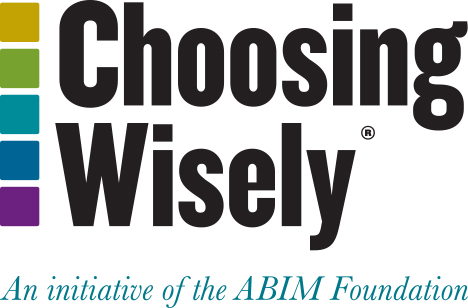The Safety Blog
The Safety Blog serves to highlight patient safety news and stories aimed at upholding our mission: safe care for every patient, every time, everywhere.
WSMA – Accelerating Adoption of Choosing Wisely
 By: Jessica Martinson, Washington State Medical Association
Director of Clinical Education and Professional Development
By: Jessica Martinson, Washington State Medical Association
Director of Clinical Education and Professional Development
The Washington State Medical Association Foundation for Health Care Improvement has been hard at work on behalf of patients and physicians this past year. Accelerating the implementation of the Choosing Wisely campaign and launching the Honoring Choices Pacific Northwest advance care planning program were our top priorities.
Honoring Choices® Pacific Northwest
Honoring Choices Pacific Northwest, a collaborative initiative between physicians and hospitals, has partnered with national leader Gundersen Health to bring evidence-based advance care planning training directly to physicians, hospitals and communities to ensure they are prepared to discuss and honor patients’ wishes.
We plan for major life events such as college, marriage and having children, yet when it comes to planning the last chapters of our life, we often don’t discuss what kind of health care we want during this significant time. With that in mind, the WSMA and Washington State Hospital Association created Honoring Choices Pacific Northwest with the following vision:
Everyone in Washington will receive care that honors personal values in the last chapters of life.
“Doctors and hospitals in Washington have come together with partners across the state—and now nationally—to promote conversations so that people in our region will receive care that meets their personal goals,” says Joanne Roberts, MD, chair of the Honoring Choices Pacific Northwest Advisory Council and chief medical officer at Providence Health & Services Northwest Washington Region.
“There is a tremendous need for people to have early conversations with their families and physicians about the type of care they would want if faced with a life-threatening illness. Research shows that 60 percent of people don’t want to burden family with tough decisions, yet nearly as many have not discussed their end-of-life care wishes with their family,” says Brian Seppi, MD, past president of the WSMA. “Recognizing this need, WSMA and WSHA brought together advance care planning efforts across the state and country to create a regional strategic plan to further increase awareness, knowledge and resources patients, families and health care professionals.”
Under the new partnership, Honoring Choices Pacific Northwest was launched last January with a website, www.HonoringChoicesPNW.org, designed to support both the public as well as care providers. This fall, Honoring Choices Pacific Northwest started implementing Gundersen’s widely-acclaimed Respecting Choices® First Steps® advance care planning curriculum in health care organizations around the region.
Choosing Wisely®
This year, the WSMA Foundation and the Washington Health Alliance—both previous recipients of Choosing Wisely grants—were awarded a three-year grant from the American Board of Internal Medicine Foundation to continue their support of the Choosing Wisely initiative to reduce unnecessary and potentially harmful care.
Joining them on the grant are Group Health Cooperative and Swedish Health Services, both of which are undertaking bold efforts to significantly reduce the overuse of antibiotics for acute upper respiratory viral infections, imaging for uncomplicated headaches, and overly frequent Pap tests for women.
Once the grantees demonstrate success within Group Health Cooperative and Swedish Health Services, the goal will be to adapt and apply what they learned to other health care organizations around the state. The WSMA Foundation is working closely with its grant partners to develop and deliver clinical education both within the selected health systems, as well as more broadly across the state.
The grant builds on the work of the Washington State Choosing Wisely Task Force, which is co-sponsored by the WSMA, WSHA and the Alliance, and consists of physician leaders from 22 of the largest health care organizations in the state. In 2014, the nation’s first statewide report measuring select Choosing Wisely recommendations was issued, based upon specifications developed by the task force. In response to the findings, the task force published the Choosing Wisely Action Manual, a step-by-step approach to making system-level changes. These resources can be found at: www.wsma.org/Choosing-Wisely.
STEADI – Stopping Elderly Accidents, Deaths & injuries
By: Mary Borges, Senior Fall Program Manager, Washington State Department of Health
Make STEADI Part of Your Medical Practice
Falls are not an inevitable part of aging. There are specific things that you, as their health care provider, can do to reduce their chances of falling. STEADI’s tools and educational materials will help you to:
- Identify patients at low, moderate, and high risk for a fall;
- Identify modifiable risk factors; and
- Offer effective interventions.
3 Questions to Ask Your Older Adult Patients
When you see patients 65 and older, make these three questions a routine part of your exam:
- Have you fallen in the past year?
- Do you feel unsteady when standing or walking?
- Do you worry about falling?
If your patient answers “yes” to any of these key screening questions, they are considered at increased risk of falling. Further assessment is recommended.
STEADI Phase One includes 3 steps that you can complete in one visit:
- ASK patients if they’ve fallen in the past year, feel unsteady, or worry about falling.
- REVIEW medications and stop, switch, or reduce the dosage of drugs that increase fall risk.
- RECOMMEND vitamin D supplements of at least 800 IU/day with calcium.
STEADI Online Training
CDC launched the STEADI Older Adult Fall Prevention Online Training for Providers at the White House Conference on Aging on July 13. The one-hour training focuses on the STEADI guidelines, making fall prevention part of clinical practice, and how to screen patients 65+ for falls, identify risk factors, and offer interventions. The training can be accessed through CDC TRAIN: http://www.cdc.gov/steadi/. Continuing Education credits are available.




